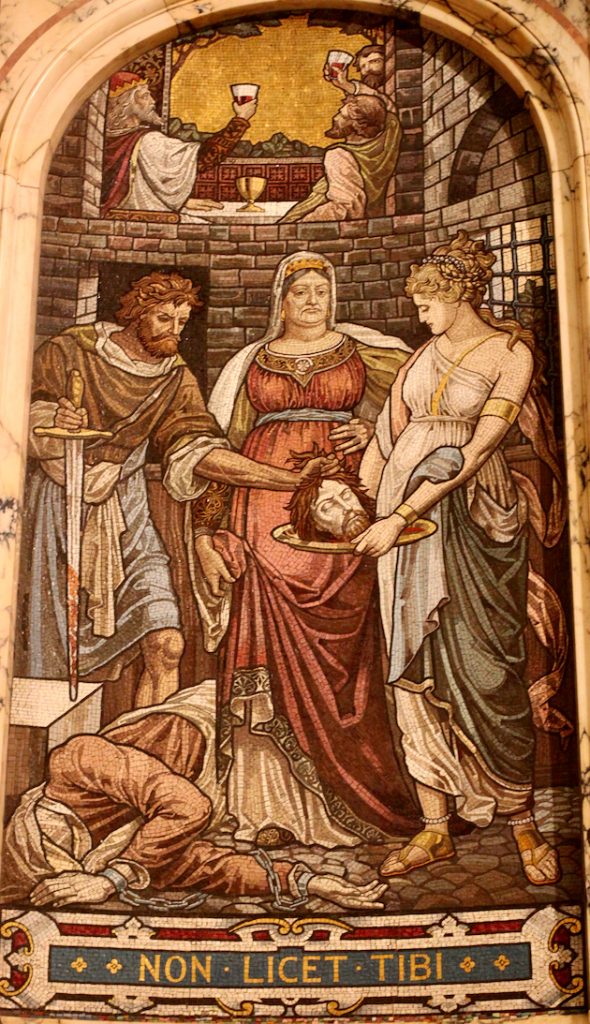
(Above) Herodias, Salome and the decapitated St. John the Baptist as depicted in the leading baptistery of Catholic New York located in St. Ignatius Loyola Church.
Recent commentators have drawn attention to the contrast between Fiducia Supplicans and the martyrdom of St. John the Baptist.
But Gustave Flaubert in his 1877 novella Herodias had aready juxtaposed the use of specious and sophistic reasoning (as well as perverse biblical exegesis) on the subject of adultery with the story of John’s death. In the following exchange, the tetrarch Herod (Antipas) and his entourage try to talk away the fiery denunciations made by John (Iaokanaan) that they have just heard:
Herodias glided away and disappeared within the palace. The Pharisees were scandalised at what they had heard. Antipas, standing among them, attempted to justify his past conduct and to excuse his present situation.
“Without doubt,” said Eleazar, “it was necessary for him to marry his brother’s wife; but Herodias was not a widow, and besides, she had a child, which she abandoned; and that was an abomination.”
“You are wrong,” objected Jonathas the Sadducee; “the law condemns such marriages but does not actually forbid them.”
“What matters it? All the world shows me injustice,” said Antipas, bitterly; “and why? Did not Absalom lie with his father’s wives, Judah with his daughter-in-law, Ammon with his sister, and Lot with his daughters?”
Aulus, who had been reposing within the palace, now reappeared in the court. After he had heard how matters stood, he approved of the attitude of the tetrarch. “A man should never allow himself to be annoyed,” said he, “by such foolish criticism.” And he laughed at the censure of the priests and the fury of Iaokanann, saying that his words were of little importance.
Flaubert, Gustave, Herodias (included in Three Tales(1877)).
Related Articles
No user responded in this post